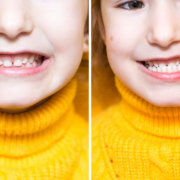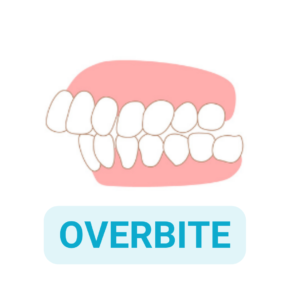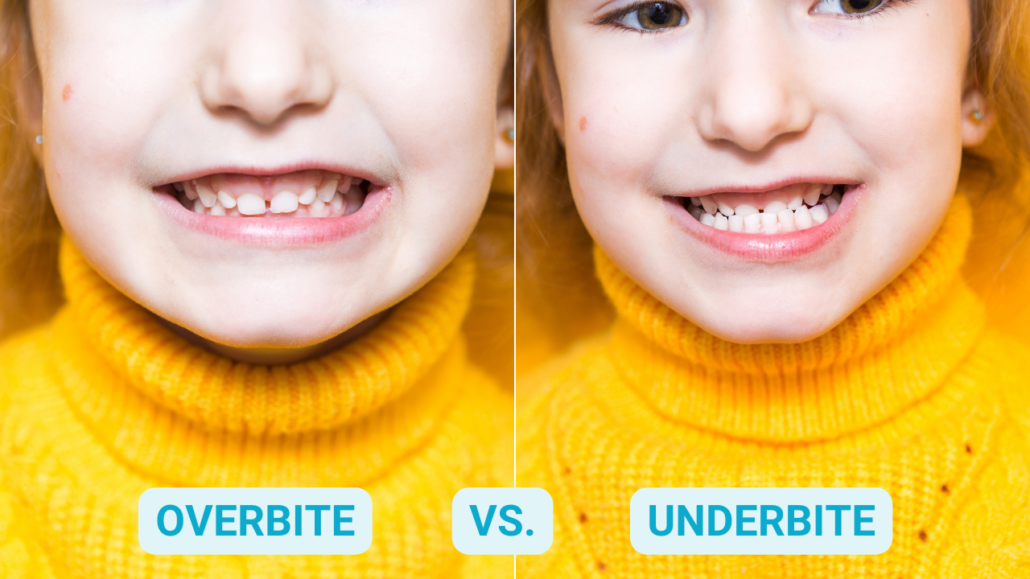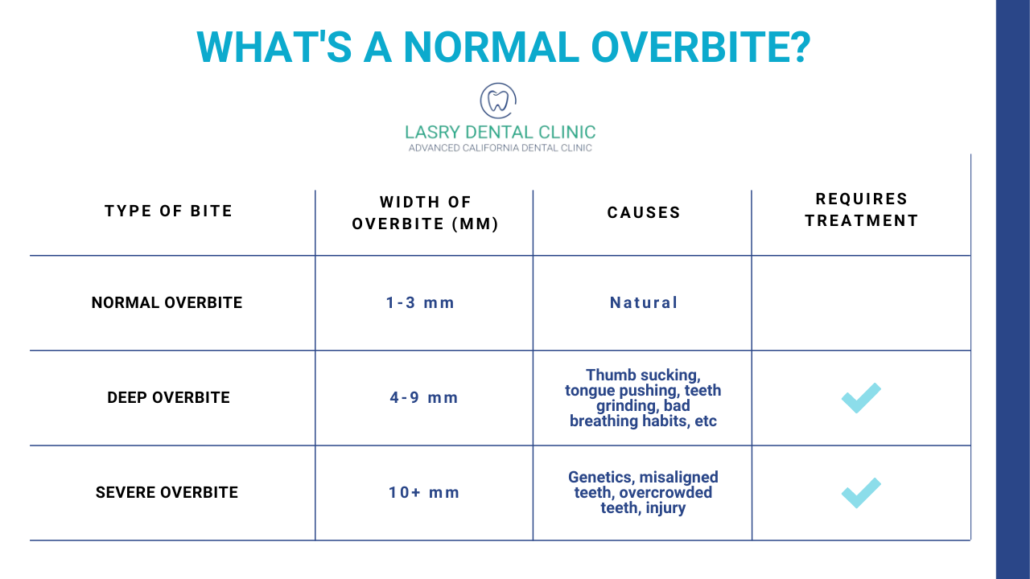The Key Differences Between an Underbite vs. Overbite
When you’re considering cosmetic dental work, your dentist will often suggest correcting your bite. There are two types that you’re probably already aware of: underbite vs overbite.
It can feel irritating when your teeth aren’t perfectly aligned. It can cause jaw soreness, headaches, and can even lead to painful conditions such as TMJ.
Believe it or not, your bite affects how you live your daily life. An overbite or underbite can alter your breathing, eating, and swallowing.
Knowing whether you have an underbite vs. overbite can help you decide which service to ask your dentist about to correct your condition.
RELATED: HOW TO BRUSH YOUR TEETH PROPERLY
What Is An Underbite?
An underbite is when your lower teeth overlap in front of your upper teeth. Underbites are rare compared to overbites. Only 5-10% of the population develops an underbite vs. overbite patients at over 80%.
The sooner an overbite is corrected, the better. For example, if you notice your child has an underbite, talk to your dentist about this now. This prevents them from developing issues like speech impediments or crooked or overcrowded teeth.
What Causes Underbite?
An underbite is defined by a protruding jaw caused by an overdeveloped lower jaw bone or an underdeveloped top jaw bone.
There are three leading causes for underbites:
1. Bad habits
It may look cute when your child is sucking on their thumb, but you don’t want this to become a habit after the age of two because it can lead to underbites.
Even mouth breathing can affect your child’s facial development and lead to them developing an underbite. Here’s why nose breathing is essential.
Pacifier use past the age of 4 and bottle feeding after 12-18 months can also cause a child’s underbite.
2. Genetics
Patients may find it silly to ask if underbites are genetic, but the answer may surprise you.
If someone in your family has an underbite, there’s a chance you or your child may develop one as well.
Unfortunately, there’s not much you can do to prevent an underbite from genetics. Instead, bring up your concerns with your pediatric dentist to determine the best course of treatment in the coming years.
3. Injury
Blunt force to the face or unforeseeable medical issues (such as tumors) can cause underbites.
These injuries may become more noticeable over time. Some symptoms that indicate your bite may need medical treatment are:
- Trouble chewing or swallowing
- New teeth issues such as gum disease or tooth decay
- Jaw pain or headaches
- Speech impediments
Treatments for Underbites
Underbites are a bit more complicated to fix than overbites. Because childhood habits are the primary culprit for underbites, it’s vital to be proactive and stop those bad habits as soon as possible.
Treatments such as braces or Invisalign can help reverse underbites. But remember: the sooner, the better. Invisalign clarifies that they can fix some underbites, but individual cases may require a mixture of Invisalign and surgery.
Your dentist may recommend palatal expanders if you have an underdeveloped upper jaw. These devices expand the roof of your mouth and widen your jaw. Removing some of your molars may also help and reduce overcrowding teeth.
Adults and teens with fully-developed jawbones may need corrective jaw surgery. This procedure may include bone grafting, jaw repositioning, and shortening or lengthening the jaw bone.
RELATED: HOW TO BRUSH YOUR TEETH WITH BRACES
What Is An Overbite?
An overbite is when your upper teeth overlap in front of your lower teeth. However, not everyone with an overbite needs to have it corrected.
In fact, most people have a slight overbite.
Your dentist considers an overbite to be excessive if it protrudes roughly 4 to 10 millimeters over your bottom teeth.
Causes of Overbite
The causes of an underbite vs. overbite are not that different. Those same bad habits, genetics, and injury can also be why you have an overbite.
Some other causes of overbites include:
1. Teeth Grinding
Studies show that teeth grinding or bruxism can lead to overbites. Whether you do this while you’re awake or asleep, this habit wears down your teeth which can cause your bite to misalign over time.
According to Cleveland Clinic, grinding “affects about 10% of adults and up to 15% of children.” You might grind your teeth due to stress, sleep apnea, or because of the medicines you take.
Even having too much caffeine can cause incessant grinding!
2. Overcrowding
You don’t completely lose all of your baby teeth until about 12 years old. Even then, some people won’t develop their molars until 17-25 years old.
Depending on your childhood habits, genetics, and oral hygiene routine, you may find that your teeth become overcrowded as an adult.
Overcrowding can lead to overbites because your teeth won’t be properly aligned.
Misaligned teeth are the most significant contributors to overbites. When you can’t comfortably bite down, you will naturally adjust your bite to avoid pain or discomfort, thus leading to overbites.
3. Tongue Pressing
Pressing your tongue against your teeth and even excessive tongue thrusting can cause your teeth to misalign and cause overbiting.
Pushing your tongue against your front teeth (while resting or eating) also pushes those front teeth forward. A tongue pressing habit at a young age can really affect how your teeth grow in; remember, your permanent teeth don’t fully develop until about age 25.
Left untreated, overbites can cause:
- Jaw pain/headaches
- TMJ
- Breathing issues
- Cavities and tooth decay
- Changes to your facial structure
Treatments
Thankfully, overbites are easily treatable. Again, it’s ideal to stop bad habits like thumb sucking and mouth breathing at an early age to prevent overbites.
At home, you can practice breathing exercises to stop mouth breathing and tongue pressing. Wearing a mouth guard to protect your teeth from grinding can also be an effective at-home treatment for overbites.
Your dentist will likely recommend Invisalign or braces if the damage is already done. Here’s the difference between Invisalign vs. braces.
For children, it’s best to wait until they’ve lost most of their baby teeth before investing in these options (age 12 or older).
Your dentist may also recommend tooth extraction to make more room for your teeth to correct the misalignment and overbite.
RELATED: FOOD THAT IS BAD FOR YOUR TEETH
Underbite vs. Overbite FAQs
Here are some additional questions our patients ask in regards to underbite vs. overbite:
1. Are underbites genetic?
Yes, underbites are genetic. If you or your partner have an underbite, it’s likely that your child will also develop one. Some ways to counteract this development include:
- Improve your child’s breathing habits with daily exercises
- Stop bottle feeding after 12 months
- Stop thumb sucking and pacifier use after 2 years old
2. Will Invisalign fix overbite?
According to studies, Invisalign can treat mild to moderate overbite cases. Dentists may recommend braces for children since their teeth and jaws are still developing.
3. How much overbite is normal?
Overbites are common. A normal overbite will be about 1-3 mm, a deep overbite is 4-9 mm, and a severe overbite is 10mm or more.








My husband and I are having an argument over whether I have an underbite or overbite. I’ve been through the gamete of having nubs of top and back teeth. I’ve had: headaches,stammering my words when young, bruxism, and now I am sixty and some months and still have problems. I have an extremely small mouth and over crowding of teeth. I have gone the through the ropes and have a small mouth like my maw. She too had a small mouth and was the child of 11 sisters and brothers. She was from rural Georgia, extreme poverty, an outhouse and none of the youngins saw a dentist. Her brothers and sisters never saw a dentist and all of them lost their teeth because they were too busy working the farm or trying to survive in whatever manner they saw fit.They never saw a dentist because they were too busy trying to survive! Life was tuff as a titty, in rural Georgia. I too know extreme poverty and near starvation.
I try to floss at least three times a day. I brush my teeth all the time, especially after sweets or sticky candy, because I am a Type 1 Diabetic and I’ve had thousands of diabetic lows, so sugar is my “Sugar Daddy!” I am not being funny, because I am stating the truth, and it’s been Hell.
I went to see Dr. Blackburn, in Savannah, GA, and he looked at my teeth. He put them together, sighed and did not like the way I looked. I totally agree. I looked freakish!
He ended up shooting his wife at the Hyatt Hotel, in Savannah, GA, and then took the gun to his mouth and blew himself away. Dr. Blackburn was best friends with my uncle and they had breakfast every morning in Savannah. I am related to Dr. Blackburn. Everybody is related to everybody in the deep south. After the double massacre, my aunt told me the full details. Aunt Emmer told me me that Dr. Blackburn’s wife put Dr. Blackburn through orthodontics’ school and it was a double homocide over money. Awful! The blood stains were there for decades at the front door as you enter. I could not walk on the blood-stained doorway of the hotel.
I almost had my jaw broken in Lewisburg, PA, but my husband and me moved to Lafayette, LA. Maybe it’s in the cards that I don’t get my jaw broken, but I hate the wrinkles around my mouth, just like my maw and her wrinkles.She had Botox or Juverderm injections and never told me. I will go to Charleston, SC, and get my wrinkles fixed by Dr. O, a Korean plastic surgeon. He’s appears smart and knowledgeable.Hey, they’re the smartest people on the planet.
What would you say about my predicament? I am too old and should just deal with it, right? Well, I better go brush my teeth after eating out in my new home, Hilton Head Island, SC., just a fir piece over the Savannah, river. I miss my hometown, Savannah. Thanks, Dorothy Rockwell Olson –
(Sorry for being long-winded.)
Hello, A